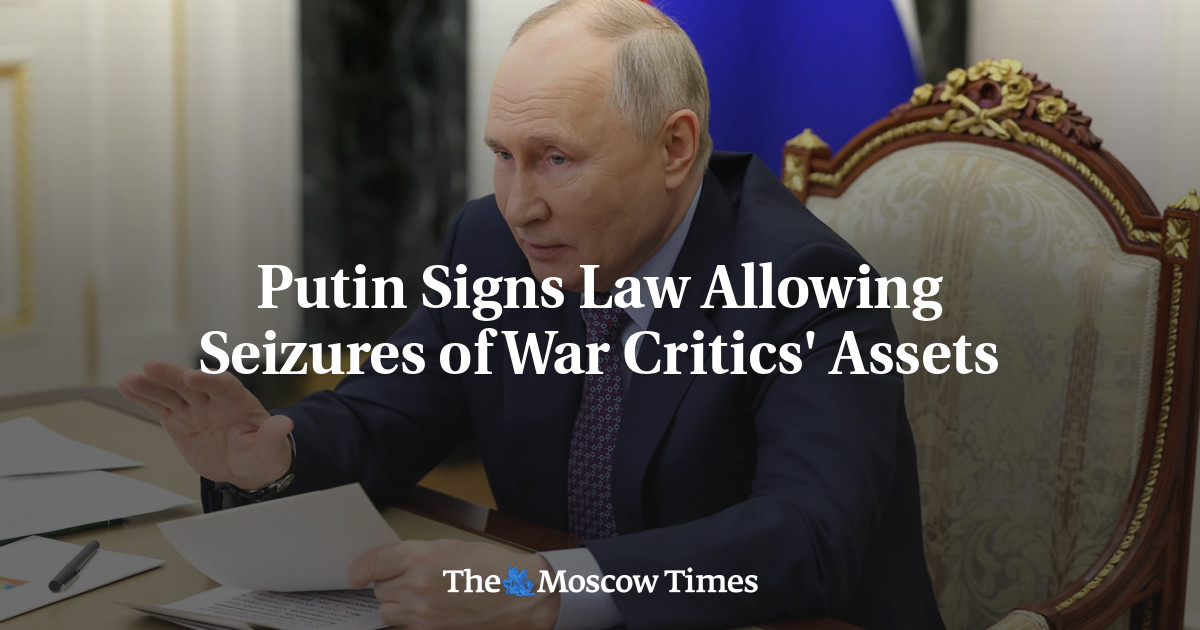
President Vladimir Putin on Wednesday signed a law that allows authorities to confiscate the assets of individuals convicted of “discrediting” and spreading “fake news” about the military.
The wartime legislation also allows seizing money and other valuables from those found guilty of inciting “extremist” activity and calling for “anti-Russian” sanctions.
The law does not appear to include real estate among the assets subject to confiscation, unlike Soviet-era legislation.
The Kremlin said Wednesday there were “no grounds” for the public to fear the new confiscation law and ruled out any associations with its Soviet predecessor.
Both houses of Russia’s parliament had passed the bill swiftly and unanimously over the past two weeks before it reached Putin’s desk.
State Duma Speaker Vyacheslav Volodin said on Jan. 31 that the new measures sought tougher punishments for “traitors” and “scoundrels” who oppose Russia’s invasion of Ukraine.
Russian authorities outlawed criticism of the military shortly after the February 2022 invasion.
The charge of spreading “fake news” about the army carries a maximum jail sentence of up to 15 years and has been used by the authorities to stifle nearly all forms of dissent.
Thousands of critics of the war have fled abroad to evade prosecution, with many leaving behind assets in Russia.